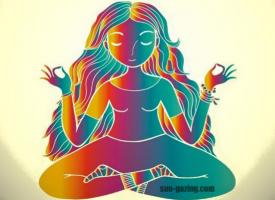Mindfulness and Stress Related Illness

Mindfulness Can Reduce Stress
By restructuring the neural pathways in the frontal, rational lobe of our brain, we change the way we view, interpret and assess our environment and experiences. We begin to develop a less reactive view of life, thereby reducing our stressful thoughts and in turn our stress.
Anxiety
Mindfulness has a dramatic effect on the nervous system. It calms the Sympathetic nervous system, allowing different chemicals to be released into the bloodstream resulting in a much calmer state.
Depression
As above, mindfulness affects the nervous system. In this case, it can help restore the functioning of the parasympathetic nervous system, once again changing the levels of the ‘rest and digest’ hormones and chemicals, allowing for increased energy levels and feeling of motivation.
Anger
As in anxiety, mindfulness helps to calm the fight and flight mechanism by not continuously repeating the same reactions and thoughts that incite anger. Because we learn to observe our thoughts, we begin to observe our anger, instead of ‘being angry’.
Addictive Behaviour
When we start to see cravings for what they are, a set of physical bodily sensations created by certain beliefs and thoughts. We can use our mindfulness to observe these thoughts and sensations, without giving energy to them, allowing them to pass away as all experiences do.
Sleeping Difficulties
Researchers and meditator’s say that 1 hour of mindfulness is equivalent to 3 hours of sleep. Sleep is not the intention of mindfulness, but it can definitely put you into a much more relaxed state with a quiet mind, which allows sleep.
Mindfulness can also enhance...
Feelings of well-being, focus and attention span, sense of peace, healing, immune response, sexuality, memory, energy, emotional regulation.
FOUNDATIONS OF MINDFULNESS
1. Non-judging ‘Everything has value for us’
The more objective or impartial we can be to our own experiences the more we can see that all experiences have value. This is just an experience, nothing more nothing less.
Why is everything labelled and categorised by the mind? Good/bad Happy/sad Right/wrong
This is part of our survival mechanism, hence why we don’t want to remove judgement from our lives completely. We need to be able to assess our environments quickly in order to assess the possibility of danger.
No need to judge the judging.
When we realise the brain judges for survival, we realise that we are not the judgement and can step back without reacting to, or acting on them. The same way we are not our thoughts or our emotions, just the observer of them.
Why is it important to recognise when we are judging?
So we can realise that our judgements are just a perception, not necessarily reality. Then we don’t need to impose our judgements on others or on life.
2. Patience ‘A correct understanding of reality’
The wisdom to know that life is unfolding in the only way it can in its own time, in its own way and we do not have total control over that.
What does ‘this too shall pass’ mean?
IMPERMANENCE = nothing lasts forever. What ever begins ends, the only constant is change. Our thoughts, body sensations and experiences are meant to come and go. Its only when we react to them that we get stuck in the cycle. With patience ‘this too shall pass’.
What does accepting everything mean?
Embracing all experiences, not just the ones we want. If it has happened, we have to accept that. Why? Because it happened and we cannot change it.
3. Beginners Mind ‘Childs view of the world’
Why do we need to see everything, as if it were for the first time each day?
If we see everyone (including ourselves) and everything newly each day, as if we had never met them (us) before, we are now living in the present. Imagine looking through the eyes of a child seeing it for the first time, looking at life with the wonder and amazement that life truly deserves. This would turn your life, (no matter what you were doing or experiencing) into one that was worth living just for the sheer excitement for being alive.
4. Trust ‘The more you trust yourself, you trust others’ ‘You have all you need to practice mindfulness’
TRUST that our brain is working fine, you are not broken, and you do not need to be fixed or cured. TRUST, that when your mind wanders, that is the only thing that could be happening. TRUST, that the more you practice the better you will get. TRUST that if you find it difficult and agitating you will benefit greatly from it.
TRUST that if you don’t feel like doing it, that it’s the best time to do it. TRUST you have the capability to get through all of life’s potential ups and downs. TRUST that you don’t need anything outside of yourself to be valuable. TRUST and understand that at all times you are in the embrace of life and that you belong. TRUST that life is always unfolding in the only way it can with everything that has gone before it. TRUST that this too shall pass. and most of all... TRUST, is that you and everyone else will always act according to the level of information, beliefs and priorities that is currently held.
5. Non-striving ‘The act of non-doing’
Many in the east understand though that only true action can come from stillness.
The only goal is to be yourself and you already are.
When you stop trying to prove your value, you realise it. When you start dealing with what is arising in this moment, you are automatically moving into your future, without the need to strive or by ‘doing’ anything in particular.
Why can non-striving be one of the hardest principles to embody?
Because, we are taught and conditioned to do this from birth, set your goals and ceaselessly strive to achieve them to prove to mum, dad and society that you are a worthwhile investment and that you are good enough to belong on the planet.
When we back off the striving, and just do what we can do in the moment, we often find we get to the goal anyway.
6. Acceptance. ‘Seeing things as they are, not as you would like them to be’
What happens, when we deny and resist, what is already fact?
Stress! It’s exhausting and tiring work denying reality.
Does acceptance mean taking a passive attitude in the world?
This doesn’t mean you become a doormat and that your thoughts, opinions and feelings do not matter. It means that when something happens that you don’t agree with, or someone has beliefs different to yours, you first need to accept what is, then you can try to communicate and influence change, but if there is strong resistance or possible harm for yourself and others, well accept that remove yourself from the situation, and accept that for what it is, just another experience.
7. Letting go ‘non-attachment’
What is letting go really about?
For thousands of years, saints and sages, monks and philosophers have been telling us to practice non- attachment. What this really means, is do not attach your self worth or value to anything outside of yourselves.
Jaye :-)




